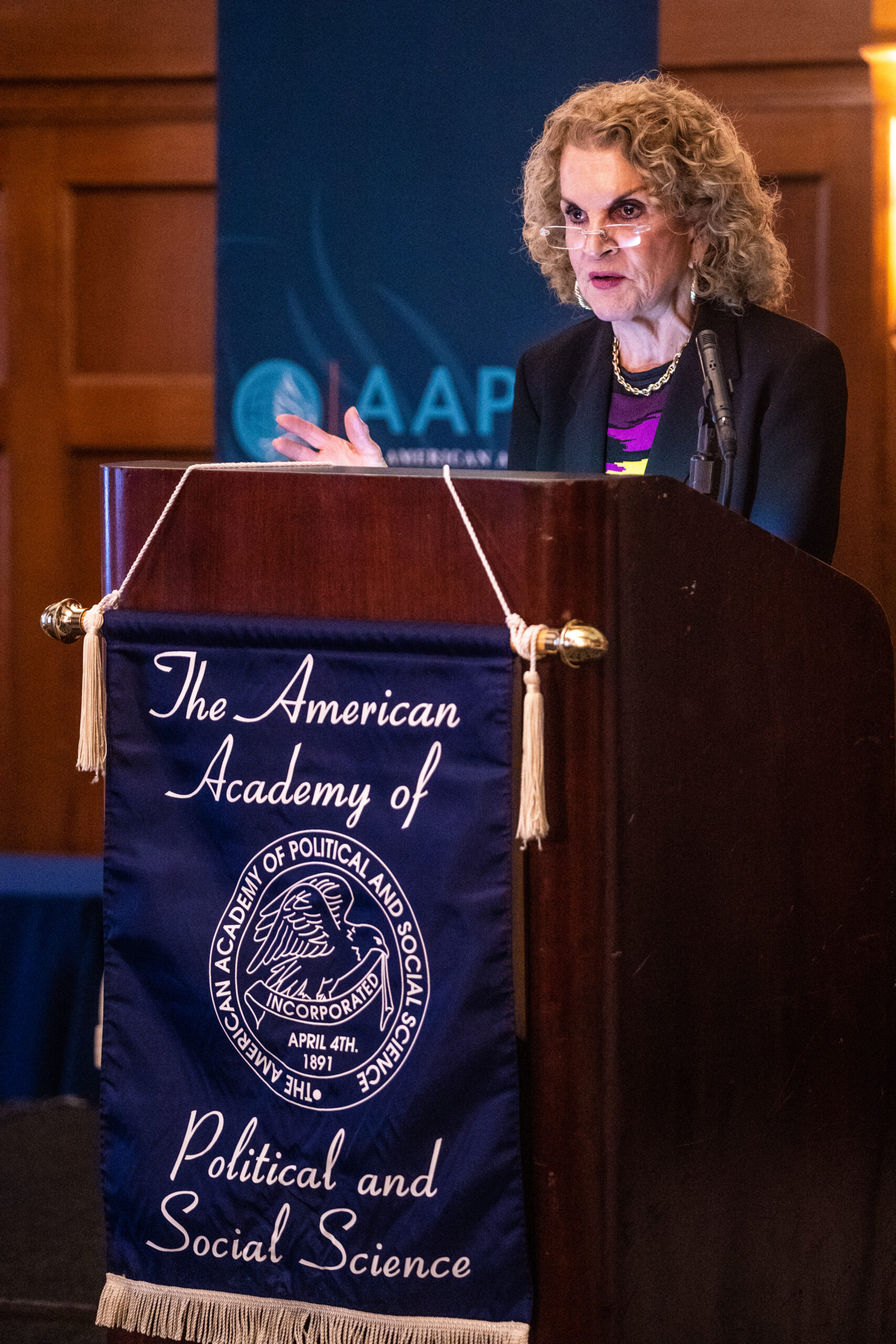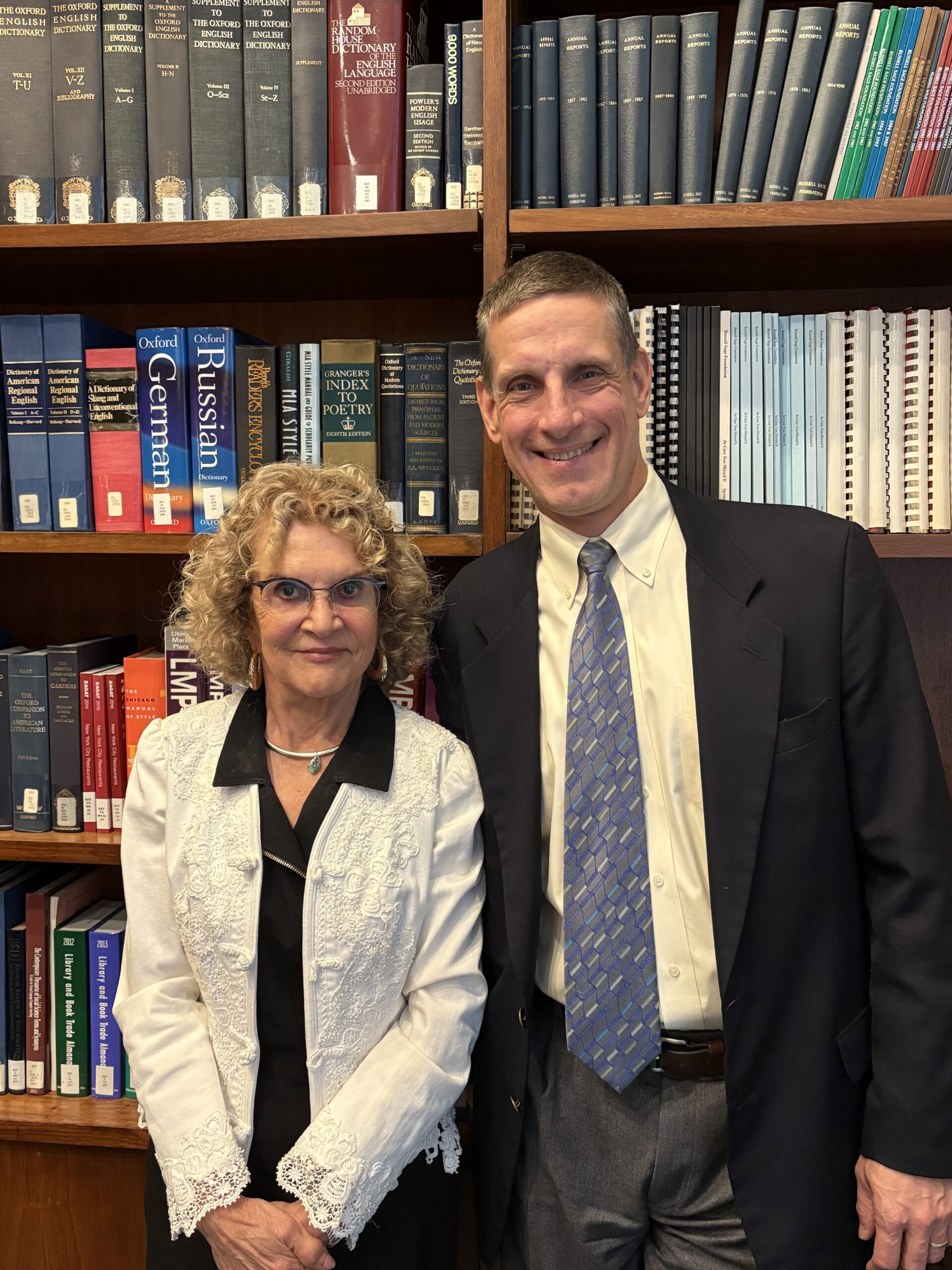Editor’s Note: Marta Tienda’s time as president of the AAPSS will conclude this summer, making this her final President’s Corner essay. The AAPSS board and staff thank her for her service to the Academy and wish her the best in her future endeavors.
In July 2021, when I began what was originally a three-year term as president of the American Academy of Political and Social Science, we were in the midst of a multiyear pandemic that claimed over 7 million lives worldwide, including 1.2 million in the United States alone.1 As the biomedical establishment raced to develop a vaccine for the novel coronavirus, public health officials issued stay-at-home restrictions and masking requirements that drastically curtailed social interactions in schools, businesses, medical facilities, places of worship and places of recreation. Social and behavioral scientists documented and analyzed the uneven consequences of COVID-19 on vulnerable populations and across institutions and governments, even as they observed mounting discontent with public health responses to the health crisis.

(Photo by Ralph Alswang)
Remarkably, the lean staff of the AAPSS sustained operations, releasing bimonthly ANNALS volumes and inducting new fellows and hosting the 2020 Moynihan Lecture through virtual means. During my four-year tenure as president, I have witnessed the unwavering commitment and creativity of a team dedicated to this organization’s mission: bringing interdisciplinary research evidence to bear on pressing social and policy problems. I am deeply grateful to executive director Tom Kecskemethy and program manager Jessica Erfer for their steadfast guidance as I learned about the important work of the AAPSS and for their indefatigable support throughout my tenure. Any successes during the past four years should be credited to Tom and Jessica.
As I step down from the AAPSS presidency, I worry about the current state of turmoil that our nation (and our sciences) must confront as scientific expertise and research funding are slashed under the false pretext of waste. The public health crisis that was underway when I assumed the presidency of the AAPSS left indelible impacts on how and where we shop, work, and learn, but it pales in comparison to the social and political crises now facing the nation. The fallout from prolonged masking requirements, school closures, and lockdowns during the pandemic fueled distrust in science and public institutions, fomented culture wars, and deepened extant social and political fissures. The erosion of public trust in public institutions and in science has unfolded over many years, but it has reached levels previously unimaginable as the second Trump administration forges ahead in reversing decades of social progress and in stymieing scientific innovation by targeting agencies and organizations whose missions are not aligned with the administration’s ideological priorities.
Having spent 45 years in academia, I am particularly distressed about the unprecedented frontal assault on the higher education sector by the current administration, allegedly to end antisemitism, dismantle diversity and inclusion programs, and promote viewpoint diversity. To be sure, there is work ahead to advance viewpoint diversity while protecting free speech, but good-faith efforts to do so must not conflate means and ends or cross boundaries between political imperatives and academic purpose: Doing so can harm both, as a Harvard computer science professor has eloquently argued. This is especially important when addressing such a complex ideal as viewpoint diversity or the boundary between free speech and hate speech. What is certain is that withholding federal funding for science and threatening to tax endowments and research institutions’ tax-exempt status are inappropriate instruments to address any form of discrimination. Left unchallenged, these egregious actions and threats can only weaken world-class institutions of higher education that our leaders should be obligated to support.

(Photo by Jessica Erfer)
This is no time for complacency. The social sciences have an important responsibility to assess the social and economic consequences of rescissions in federal funding to social programs, public education, health care, state and local governments, and myriad community institutions that serve the public good, and to identify actionable ways to restore trust in institutions.
Like the nation, the AAPSS is at a crossroads in its distinguished history. In 2024, the board commissioned an external review of this Academy to evaluate the organization in the social science ecosystem and identify how to leverage its unique assets—The ANNALS, the Moynihan Prize, and its fellows—to maximize its impact on policy and in practice. The report generated numerous recommendations that offer paths to influence national, state and local policy by drawing on rigorous and timely social science research. Our voice—an interdisciplinary, empirically rigorous, and politically agnostic one—is critically needed in these tumultuous times; this is no time to abandon the core strengths that define the promise of the social sciences to improve human welfare and promote the social good.
As my presidency comes to a close, I find comfort in knowing that the board is committed to act on the recommendations of that external review to strengthen the impact of the AAPSS at a time that warrants clear and convincing scientific evidence to address what ails America and to identify ways to restore confidence in science, public institutions, and social policy. It has been a great privilege to serve as president of this storied Academy, and I am confident that the new leadership will reinvigorate the mission of the AAPSS and deepen its impact in the years ahead. Of course, there are no vaccines for social polarization and antidemocratic policies, but I find hope in Amanda Gorman’s powerful poem, “The Hill We Climb”:
But while democracy can be periodically delayed
it can never be permanently defeated

—Marta Tienda, AAPSS President
- The World Health Organization declared COVID-19 a pandemic in March 2020 and decreed its end as an international emergency in May 2023. The United States recorded the highest number of infections and deaths for a single country, but the actual number for China is unknown. ↩︎

